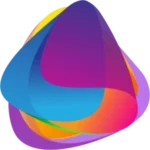The Internet of Things (IoT) is having a major impact on the agriculture industry. By connecting physical objects, such as sensors, actuators, and machines, to the internet, IoT can collect and analyze data in real-time to improve decision-making and efficiency.
One of the most significant ways that IoT is affecting agriculture is through precision agriculture. IoT sensors can be used to collect data on soil moisture, temperature, humidity, and other environmental factors. This data can be used to create precise irrigation and fertilization plans, which can help to improve crop yields and reduce water waste.
IoT is also being used to automate livestock monitoring. IoT sensors can be used to track the health and location of livestock. This data can be used to identify sick animals early on and to prevent livestock from wandering off.
Drones equipped with cameras and sensors can be used to survey large areas of land quickly and easily. This data can be used to identify pests and diseases early on, which can help to prevent crop losses.
IoT-enabled irrigation systems can use weather data and soil moisture sensors to adjust irrigation schedules in real-time. This can help to save water and improve crop yields.
Self-driving tractors are being developed that can use GPS and sensors to navigate fields and perform tasks such as planting, harvesting, and applying fertilizers. This technology has the potential to reduce labour costs and improve efficiency.
IoT is still in the early stages of development in the agriculture industry, but it has the potential to revolutionize the way that food is produced. By collecting and analyzing data in real-time

, IoT can help farmers to make better decisions about crop management, livestock care, and irrigation. This can lead to improved yields, reduced costs, and a more sustainable agricultural industry.
